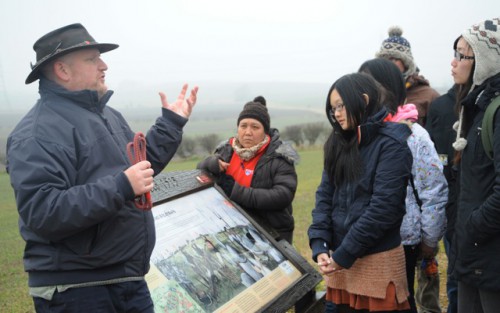ARCHAEOLOGISTS will dig for mass graves which could hold the bodies of Scottish soldiers killed during the country’s worst-ever battlefield defeat.
Work to excavate body pits around the Flodden battlefield in Northumberland will begin next month, which could lead to them being designated official war graves and protect them under law as ancient monuments.
Around 10,000 Scottish troops were thought to have died in the 1513 battle, which ended a disastrous invasion of England.

The vast majority still lie under the English fields of Flodden, as only the richest would have been taken elsewhere for burial.
The battle also claimed the life of Scotland’s “renaissance king” James IV, but his body is known to have been removed from the site.
The Flodden 1513 ecomuseum project is seeking volunteers to help with the dig, saying bodies of fallen troops will be identified but not exhumed.
Christopher Burgess, the Flodden 1513 Project Archaeological Manger explains the background further: “We are acutely aware that these are war graves and will be treating any remains found with the utmost respect.
“There is an overriding aim to locate these body pits so that the last resting places of some of the dead of both nations who fell on Flodden Field 500 years ago can be protected.”
Alistair Bowden, a project manager at Flodden 1513, said Ordnance Survey mappers found four burial pits in the 19th century.
He said: “There are four body pits in those early maps. But they’re not registered or protected.”
New techniques could mean the team will unearth more body pits, and archaeologists are hopeful more resting places will be discovered.
But the troops armour and weapons would have been taken as the spoils of war, he said: “All the armour gets stripped off very quickly.
“Going to war then was like playing the lottery.
“We might find the body pits have been separated, but generally there will be more Scots than English.”
The Flodden 1513 project is seeking volunteers from across the North of England and Scotland for the dig, which will begin on September 2.

